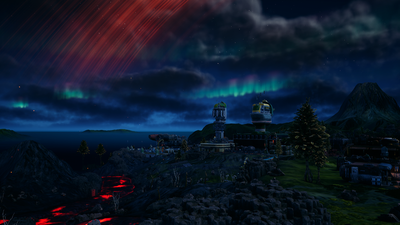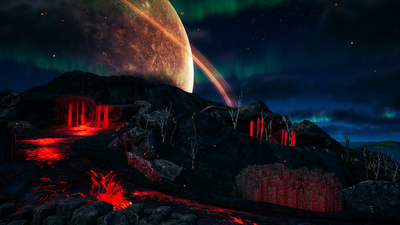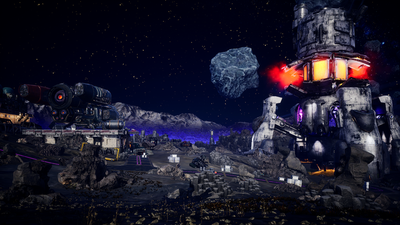The Outer Worlds
The Outer Worlds promised to let you, “the unknown variable,” truly role-play in the wild world of Halycon. Want to be the hero and save the world? Sure, who doesn’t? Want to steer your jaded friends towards self-awareness and hope? Just might work. Want to murder everyone on sight, including major companions and story-critical characters? Have a great time, you monster. Streamers have basically tried it all, and the game does indeed deliver. I particularly enjoyed embodying some kind of scientist/intellectual with an aversion for violence and a deep need to screw some corporate tools over.

What most impressed me was the world building packed into this tight, 40-ish hour experience. Every character looks different, has their own believable personality, and acts based on real fears and hopes. Most remember past encounters with you and have whole conversations scripted for the late-game, even when they’re just “extras” that have nothing to do with the ongoing story. Your companions are the best examples of the developers' care and attention to detail: one companion develops a love interest and wants to grab drinks with you to get your thoughts — this leads to a tipsy bar visit where you get to give dating advice. Other characters are working through past hurts and losses that shape who they are in the current narrative. It all feels very human, and that aspect alone (against the stark contrast of the very inhumane slave-like colony townships) is enough to pull you into the first several hours of gameplay and give gravity to the difficult choices you have to make.
The characters made me savor conversations, walking up to every NPC just to make sure I wasn’t missing personal backstories or historical context. I found myself imagining those who would be unjustly punished for my decisions to stir up trouble, or who I could win over by showing some semblance of kindness. The world felt open and full of possibility, while harboring many situations with hidden consequences.

Unfortunately, some of this delightful, game-outside-the-game enchantment faded when I realized a very simple reality: what felt like a cliff of consequence was really just a short ledge, and every mistake I made could usually be solved by shooting my way through. This wasn’t necessarily the only solution (for example, I appreciated the go-and-kill quests that offered diplomacy as a non-violent alternative), but violence was often the path of least resistance. I slowly deteriorated from a hero who respected life — killing only when just or necessary — to a skilled mercenary with a vague conscience who also happened to enjoy conversation. The magic wasn’t there in the same way after that reality set in.

Perhaps this is what The Outer Worlds had promised all along: that there would be many paths that one could fully explore, even if not all of are equally satisfying. It’s less that you live with your choices and more that your choices happen to the game, forcing it to bend and twist around you. And in that way, it really is a wonderful role-playing experience.
Bugs
- I had a syncing issue with save files between different Xbox consoles, but this may have been a fluke.
- There was one view on Monarch where the environment didn’t render correctly, and whole stone structures seemed to disappear.
- I was awarded one achievement (“Pirate Radio”) out of the blue, unsure what exactly I did to get it.